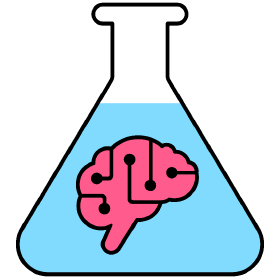
Marketing operations encompasses all the activities that keep your marketing strategies running. From managing data and analytics to marketing software implementation and integrations. Operations is a well defined profession and marketing operations is the specialism of being an operations expert but within the marketing world.
Why You Need Marketing Operations
Marketing operations have become more important as more technology is released to enable marketers to do a better job. Although marketing software, data and analytics all contribute to making a marketers job easier it is also a full time job to keep it all operating smoothly and implementing it correctly. As the saying goes, a man is only as good as his tools.
What's included in Marketing Operations?
Marketing operations can cover a lot of different things so it is easier to group the specialisms into 4 common areas of work. These 4 areas are: Analytics, Data, Automation & Technology. The details of the what is involved in each will depend on the marketing technology used which is why technology underpins all of marketing operations.
Analytics Operations
Data and analytics are one of the most important parts of any business, and especially marketing. Your data and analytics tell you when your campaigns are successful and therefore they need to be accurate and configured correctly.
Data Operations
Data operations covers the management of your first party data, typically this is the data in CRM systems such as HubSpot, Salesforce and sometimes both. Many companies don’t spend enough time looking after their data and when your data turns sour your analytics and reporting become inaccurate and useless.
Marketing Automation
Marketing automation is the process of automating tasks that are often manual and repetitive such as reporting, sending emails and changing data within your system. Marketing reporting is a task that was once done manually, usually weekly, monthly and quarterly. Sometimes daily in a consumer facing business. Automated reporting can be done easily with marketing tools such as HubSpot.
Marketing Technology
The foundation of marketing operations is the technology used by the marketing department. The software selected and implemented as also a big part of marketing operations. For example if you use HubSpot rather than Salesforce that is going to change everything about your data, analytics and processes work.
Required Skills for Marketing Operations
Marketing operation professionals are required to be analytical, organised and have a good technical understanding of how software and systems can be configured and work together. Marketing operations is a relatively new field in comparison to marketing itself and has risen to prominence with the development in digital marketing and technology.
Marketing operations have a lot to do with digital marketing and therefore there can be some crossover between the two specialisms. As usual, whether or not you have a dedicated marketing operations person usually comes down to the size of the company and the requirement for someone full-time to take on the role.
Marketing Ops vs Revenue Ops
Along with marketing operations there are also roles called revenue operations. The main difference between revenue ops and marketing ops is that revenue ops also covers sales operations. Typically there is a lot of overlap between the two.
Both marketing ops and revenue ops are focused on reporting on revenue and attributing revenue to certain activities and really the difference between the two is minimal and it can just be down to terminology.
The term revenue has often been used just to describe a company's focus on generating revenue and it is also used as an umbrella term to group sales and marketing together. So, really revenue operations and chief revenue officers and just terms used to align sales and marketing.
No doubt in the future revenue operations and a chief revenue officer will be superseded by profit operations and chief profit officer as companies try to reinvent the wheel.
AI & Marketing Operations
Artificial intelligence has been around for a while and is already embedded in our daily lives and within a lot of marketing software too. With further developments in AI and specifically LLM technology (Large Language Models) we will be able to expand on the elements of marketing operations.
LLM technology in its current state is used to generate text including code. This means marketing operation professionals can use tools like ChatGPT to generate small scripts to further automate procedures and perform tasks such as data clean up and even data analysis.
As LLM technology is still in development it is unclear how this will impact marketing operations moving forward but it is likely that any marketing operations role will involve being the custodian of the AI tool for the marketing team, just like marketing automation software is maintained, a company LLM will also need to be maintained and managed.
Find a B2B SaaS Expert
We've collected a directory of B2B SaaS experts and agencies that we've reviewed and categorised based on service and specialism for your review.














